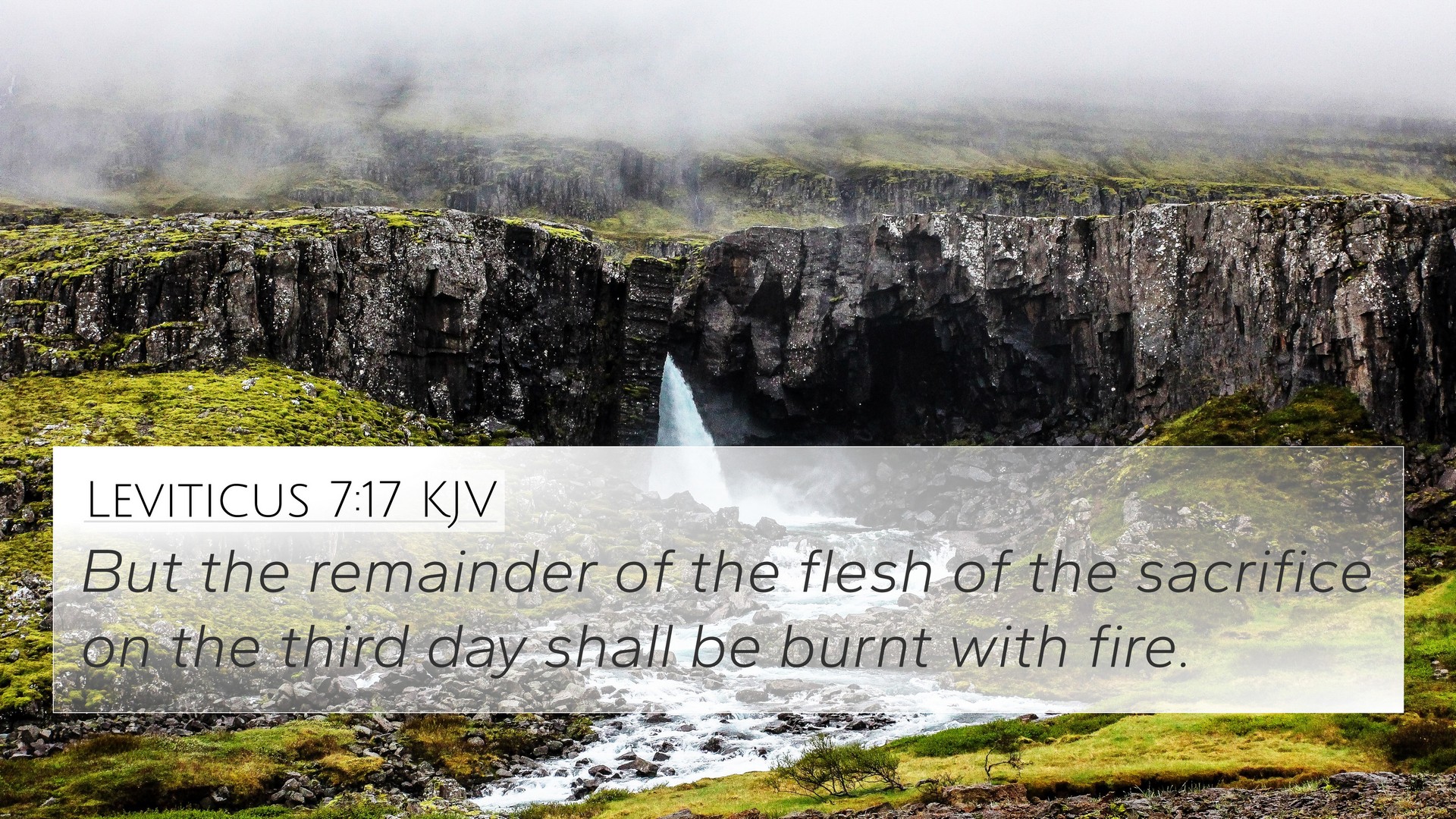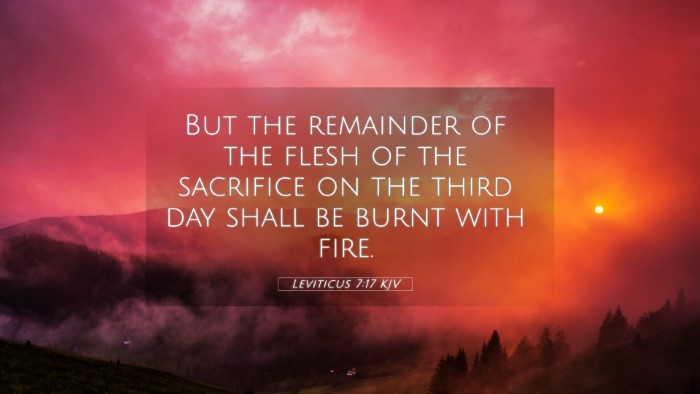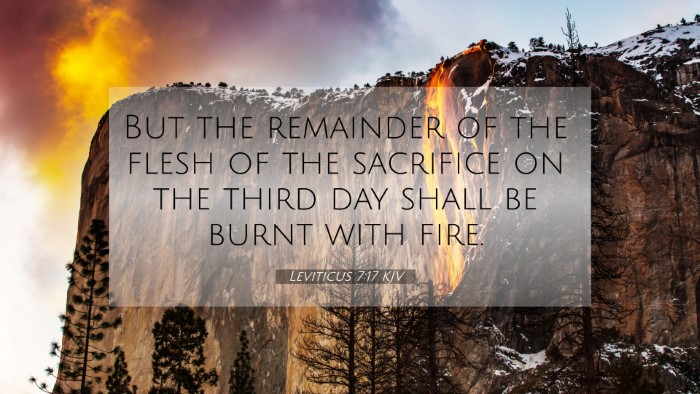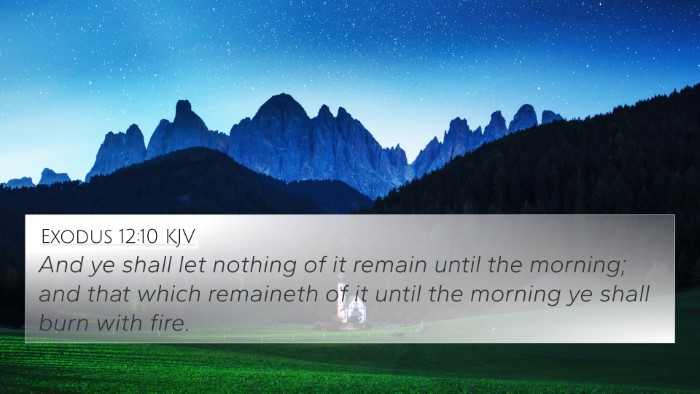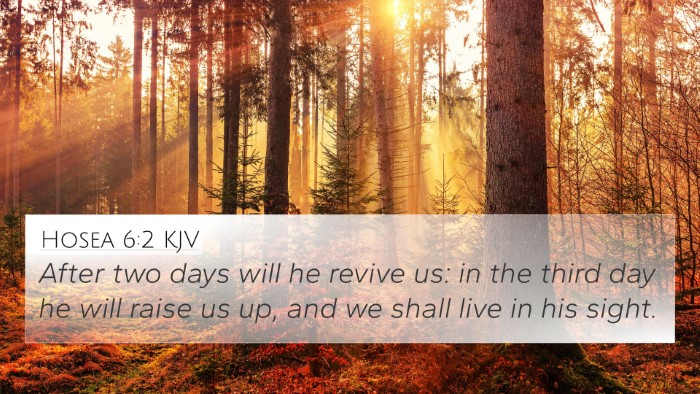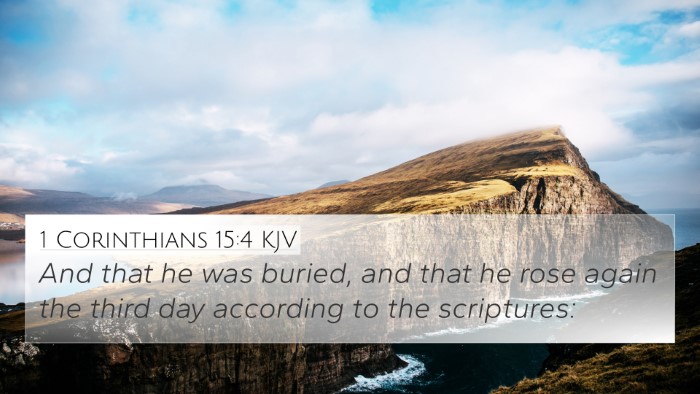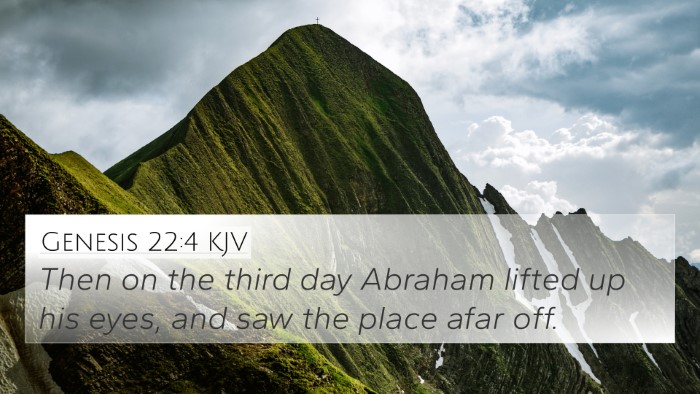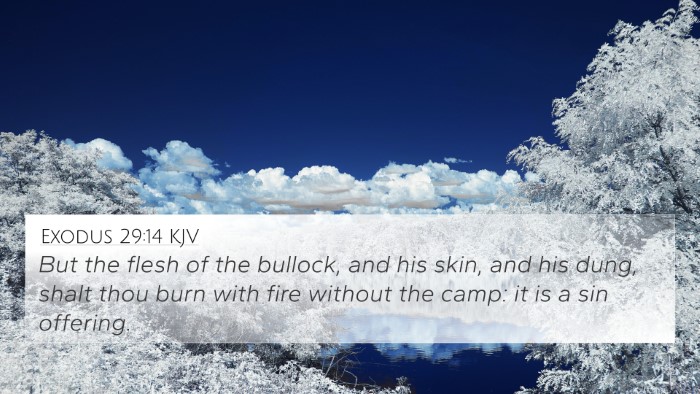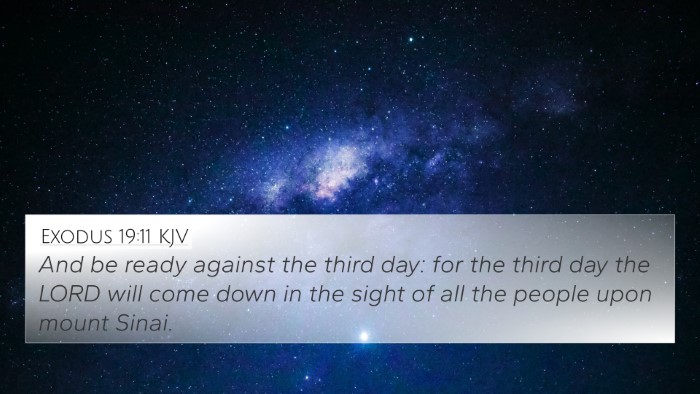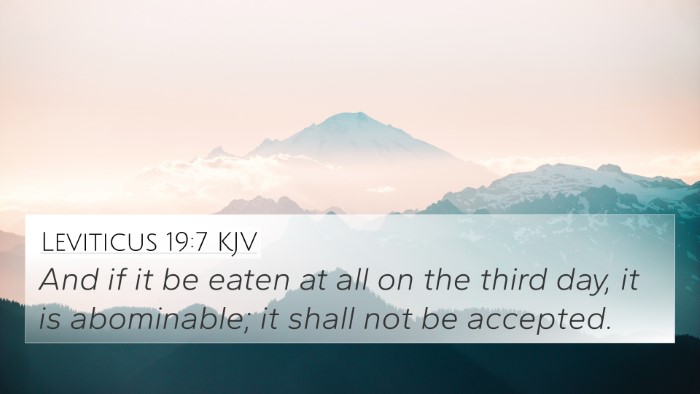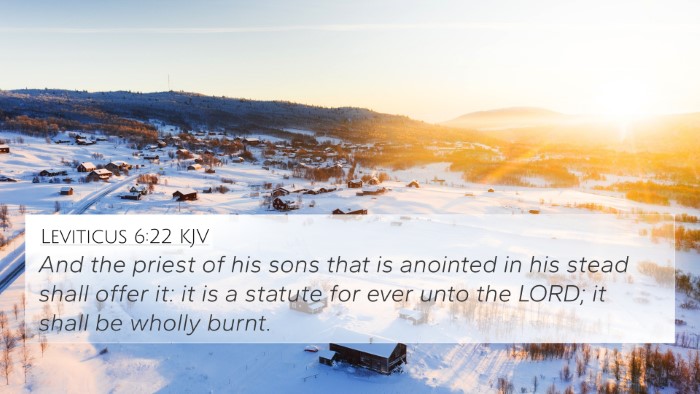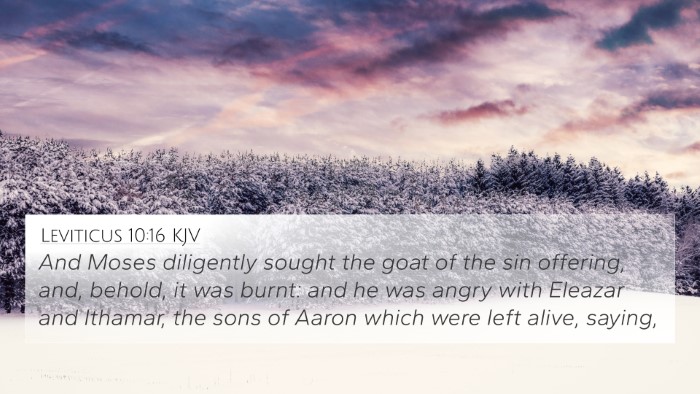Understanding Leviticus 7:17
Bible Verse: Leviticus 7:17 states, "But the remainder of the flesh of the sacrifice on the third day must be burnt with fire." This command is part of the instructions concerning various sacrificial offerings.
Summary of the Verse Meaning
The instructions regarding sacrifices in Leviticus underscore the holiness and order that the Lord demands from His people. In Leviticus 7:17, the burning of the leftover flesh on the third day symbolizes the complete dedication of the offering to God. There are significant theological implications regarding the nature of offerings and the relationship between God and His people.
Commentary Insights
Matthew Henry's Commentary
Matthew Henry emphasizes the importance of obeying God's commandments regarding the offerings. He notes that this directive not only demonstrates respect for God's holiness but also emphasizes the idea that nothing unclean should be brought before the Lord. The disposal of unconsumed portions reflects the seriousness with which the Israelites must approach their worship and sacrifices.
Albert Barnes' Notes
Albert Barnes provides insight into the symbolic nature of the third-day consumption of the sacrifice. He relates this to the idea of sin and purification. In line with the law, anything that remained after two days was considered unclean; thus, burning it on the third day reinforces the concept of spiritual cleanliness, highlighting the necessity of removing anything that does not conform to God’s holiness.
Adam Clarke's Commentary
Adam Clarke speaks to the ritual significance behind the offerings. He suggests that the burning of leftover flesh serves to purify the altar and the community. It is a tangible way to acknowledge God’s power over sin, ensuring that nothing tainted remains after the sacrificial act. Clarke also hints at deeper spiritual truths, illustrating how Old Testament sacrifices foreshadow Christ's ultimate sacrifice.
Cross-References for Leviticus 7:17
- Exodus 29:34 - Discusses the disposal of leftovers from the offerings.
- Leviticus 3:17 - Describes the everlasting ordinance regarding food offerings.
- Leviticus 10:14 - Highlights the sanctification of food from offerings.
- Leviticus 22:30 - Outlines the stipulations for consuming offerings.
- Deuteronomy 12:17 - Talks about how sacrifices should be consumed.
- 1 Corinthians 10:20-21 - Discusses participation in offerings and their significance.
- Hebrews 9:22 - Addresses the necessity of blood in sanctification.
Thematic Connections
The theme of sacrificial offerings in Leviticus 7:17 connects broadly with the narrative of sin and redemption in the Bible. The guidelines provided here are representative of the greater sacrificial system that ultimately points to Christ’s atoning work in the New Testament.
Links Between the Testaments
Leviticus creates a backdrop for understanding the significance of Christ’s sacrifice. The instructions regarding offerings, such as in Leviticus 7:17, relate to the New Covenant aspirations whereby one’s relationship with God is restored not through burnt offerings, but through faith in Jesus Christ.
Tools for Bible Cross-Referencing
To fully grasp the connections between biblical texts, one can utilize several tools:
- Bible Concordance: A helpful resource for finding related verses.
- Bible Cross-Reference Guide: Provides connections between verses across different books.
- Cross-Reference Bible Study: A methodical study of how verses relate thematically.
- Bible Reference Resources: Various tools are available to facilitate deeper studies.
- Comprehensive Bible Cross-Reference Materials: Collections of reference works that help in linking scriptures.
Inter-Biblical Dialogue
Scripture often answers questions posed in other texts. As we explore Leviticus 7:17, it prompts inquiries such as: "How does this align with the teachings of the New Testament?" and "What do early church writings say about these practices?" This dialogue enriches the understanding of God’s word and its application to believers today.
Conclusion
Leviticus 7:17 serves as a vital piece in understanding biblical sacrifices both in the Old Testament and their fulfillment in the New Testament through Jesus. The purification process described in this verse elevates our understanding of spiritual cleanliness and the necessity of atonement in one’s relationship with God. Through comparative Bible verse analysis, inter-Biblical dialogue, and various cross-references, believers gain a deeper appreciation of God’s redemptive plan.
